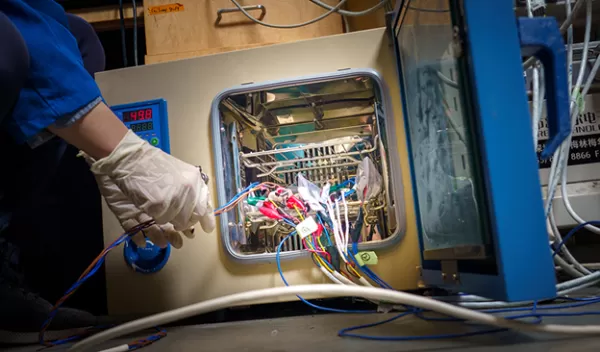
Engineers use electrolyte to create high-capacity batteries that operate in extreme temperatures
Engineers at the University of California San Diego supported by a grant from the U.S. National Science Foundation have developed a reliable lithium-ion battery that functions in extreme cold and heat. The team created an electrolyte that allows electrical currents to flow through the battery even in extreme conditions. The advance in battery technology could result in more efficient batteries that can better withstand harsh temperatures.
"You need high temperature operation in areas where the ambient temperature can reach the triple digits and the roads get even hotter,” explained Zheng Chen, senior author of the study. “In electric vehicles, the battery packs are typically under the floor, close to these hot roads. Also, batteries warm up just from having a current run through during operation. If the batteries cannot tolerate this warmup at high temperature, their performance will quickly degrade."
When the team tested the batteries at temperatures ranging from -40 to 122 degrees Fahrenheit, the prototype retained almost 80% to more than 115% capacity.
The team used a liquid solution of dibutyl ether mixed with a lithium salt to make the electrolyte. The electrolyte solution binds to lithium ions with a loose grip, allowing the electrolyte molecules to easily release lithium ions, making the battery operable in extreme temperatures.
The team plans to optimize the technology to perform under more extreme conditions and extend the battery technology's lifecycle.


